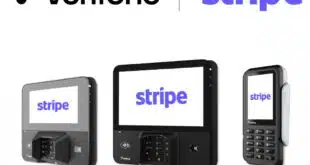PayPal, the payments arm of online marketplace eBay Inc., has put out a call for more resellers, including independent sales organizations, acquirers, independent software vendors, and value-added resellers.
PayPal, which has set up a dedicated Web page soliciting partners, says its ideal partners include “folks that share a similar vision in payments and commerce, which is enabling customers to pay easily anywhere they shop,” a spokesman says.
Almost three years ago PayPal announced it would move into brick-and-mortar stores as it sought to grow its revenue. That led to the debut of in-store PayPal acceptance at Home Depot stores and many others, and the development of a Bluetooth low energy system for providing targeted offers to consumers while inside a store using their smart phones.
Mobile commerce is a major focus of the expansion. “Mobile payments continue to grow,” the PayPal spokesman says. “$27 billion was spent globally on mobile devices with PayPal in 2013. The expanded program will provide partners with the technology, tools, and resources needed to address the mobile-commerce needs of both merchants and consumers.”
PayPal says the expanded program will be available this summer, and it includes financial incentives, marketing and sales tools, and technical support necessary to sell and support mobile payments.
Partners will be segmented into five types: solutions partners, systems integrators, processing resellers, influencer partners (financial service providers), and peripheral partners. Revenue sharing will be decided on an individual basis with each partner, the spokesman says.
PayPal’s efforts to expand the number of sales partners is essential to growing the merchant base, but the real challenge is getting consumers to think of PayPal as an in-store payment choice, says Rene Pelegero, president of Retail Payments Global Consulting Group LLC, Woodinville, Wa.
“The challenge for PayPal is to provide a good value proposition for consumers,” Pelegero says. “They should be pulling out their PayPal card or mobile device to make that payment. Up to now, consumers have not seen the value in that.”
Overall, consumers seem to be tentative about selecting one mobile payment over another, finds an IDC Financial Insights survey.
Only 37.2% of those surveyed used a mobile-payment scheme. However, of those, 58.6% reported using PayPal, the most of any mobile-payment service.
“Consumers are still trying to figure out why this is a good thing for me to do,” Pelegero says. “What PayPal needs is to find the right story [and] make the necessary investment to convey that story to consumers, just like they did in the e-commerce space, which is it will never share your payment information with merchants. They need to articulate that with consumers.”





